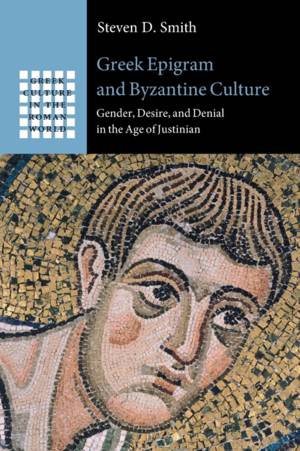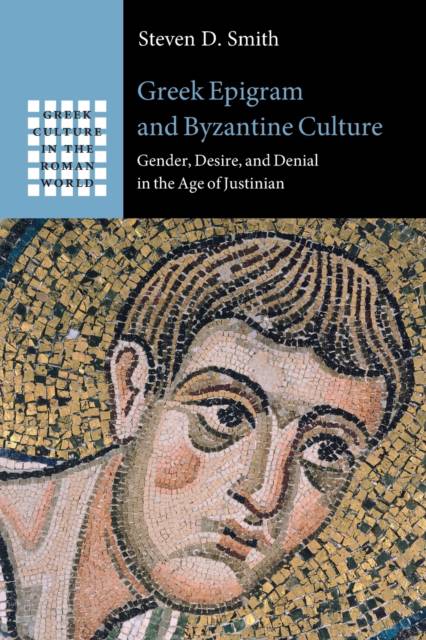
- Afhalen na 1 uur in een winkel met voorraad
- Gratis thuislevering in België vanaf € 30
- Ruim aanbod met 7 miljoen producten
- Afhalen na 1 uur in een winkel met voorraad
- Gratis thuislevering in België vanaf € 30
- Ruim aanbod met 7 miljoen producten
Zoeken
Greek Epigram and Byzantine Culture
Gender, Desire, and Denial in the Age of Justinian
Steven D Smith
€ 60,95
+ 121 punten
Uitvoering
Omschrijving
Sexy, scintillating, and sometimes scandalous, Greek epigrams from the age of the Emperor Justinian commemorate the survival of the sensual in a world transformed by Christianity. Around 567 CE, the poet and historian Agathias of Myrina published his Cycle, an anthology of epigrams by contemporary poets who wrote about what mattered to elite men in sixth-century Constantinople: harlots and dancing girls, chariot races in the hippodrome, and the luxuries of the Roman bath. But amid this banquet of worldly delights, ascetic Christianity - pervasive in early Byzantine thought - made sensual pleasure both more complicated and more compelling. In this book, Steven D. Smith explores how this miniature classical genre gave expression to lurid fantasies of domination and submission, constraint and release, and the relationship between masculine and feminine. The volume will appeal to literary scholars and historians interested in Greek poetry, Late Antiquity, Byzantine studies, Early Christianity, gender, and sexuality.
Specificaties
Betrokkenen
- Auteur(s):
- Uitgeverij:
Inhoud
- Aantal bladzijden:
- 289
- Taal:
- Engels
- Reeks:
Eigenschappen
- Productcode (EAN):
- 9781108727167
- Verschijningsdatum:
- 19/08/2021
- Uitvoering:
- Paperback
- Formaat:
- Trade paperback (VS)
- Afmetingen:
- 152 mm x 229 mm
- Gewicht:
- 390 g

Alleen bij Standaard Boekhandel
+ 121 punten op je klantenkaart van Standaard Boekhandel
Beoordelingen
We publiceren alleen reviews die voldoen aan de voorwaarden voor reviews. Bekijk onze voorwaarden voor reviews.











